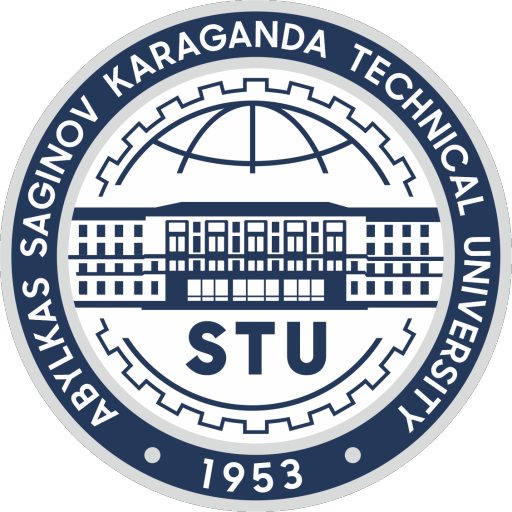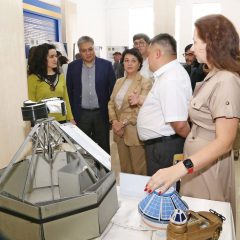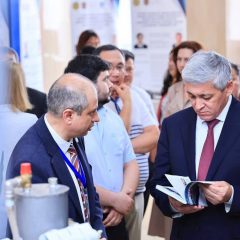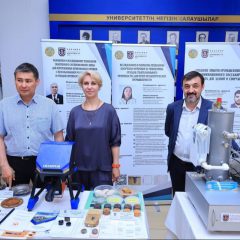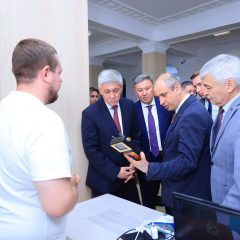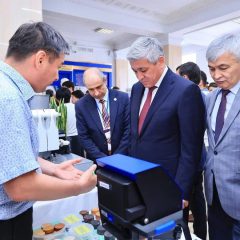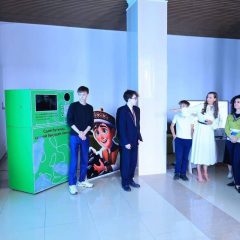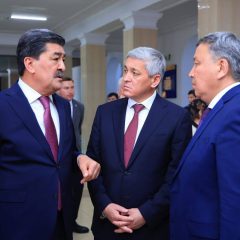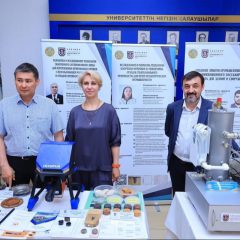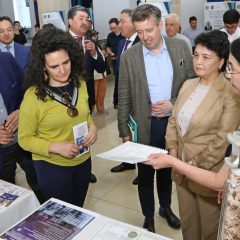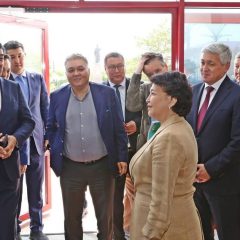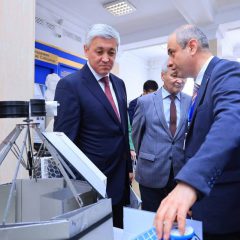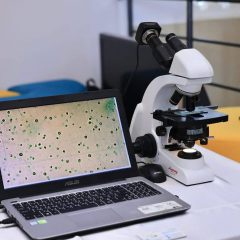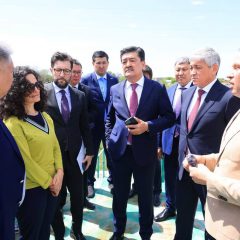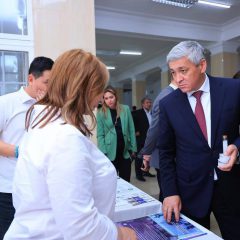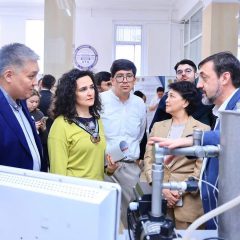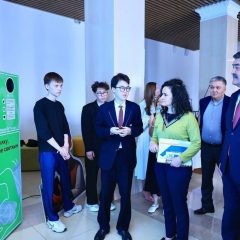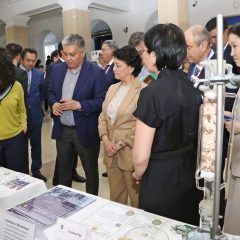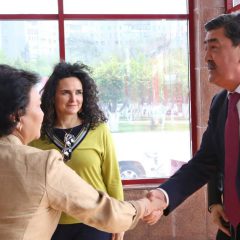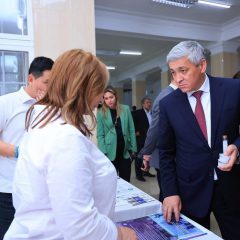On May 22, 2025, a high-ranking international delegation headed by the executive director of the Green Climate Fund (GCF) Mafalda Duarte paid an official visit to Abylkas Saginov Karaganda Technical University. The delegation included the managing director of the European bank for reconstruction and development (EBRD) for central Asia Hussein Ozkhan, the minister of ecology and natural resources of the Republic of Kazakhstan Erlan Nysanbayev, the governor of the Karaganda region Ermaganbet Bulekpayev, as well as leading international and national experts in the field of climate policy, sustainable energy and environmental protection.
The purpose of the visit was to discuss promising areas of cooperation in the field of sustainable development, implementation of climate initiatives and introduction of environmentally friendly technologies in Kazakhstan.
The university became a key platform for dialogue on issues of scientific and technical potential in the field of ecology and green transformation. The delegation was presented with an exhibition of scientific and innovative projects covering various sectors – from energy and materials science to digital solutions. A significant part of the expositions was devoted to developments in the field of green energy, energy efficiency, waste management and the formation of an environmental culture.
The guests highly praised the university’s research activities, emphasizing the importance of involving universities in training personnel for the green economy and supporting environmental initiatives of young people. As part of the discussions, possible partnership formats were considered, including participation in international GCF and EBRD programs.
In addition to university developments, initiatives from the сentral Asian сlimate Fund (CACF), the Karaganda regional ecological museum, and the center for ESG, creativity, and Innovation were presented. The projects covered a wide range of topics – from digital platforms for environmental monitoring and public awareness to programs for restoring biodiversity, protecting steppe ecosystems, wildlife, and water resources.
The visit was a significant step towards expanding cooperation between the scientific community, government agencies and international institutions in promoting sustainable development and addressing climate challenges at the regional and national levels.
